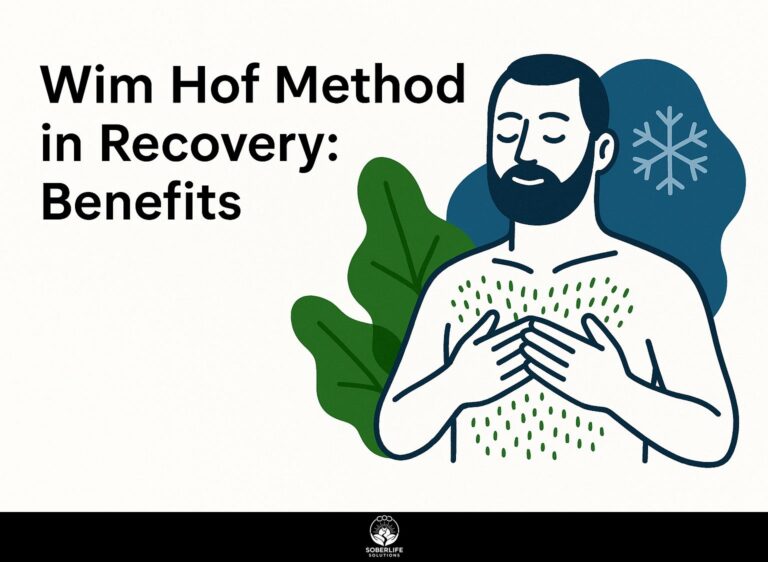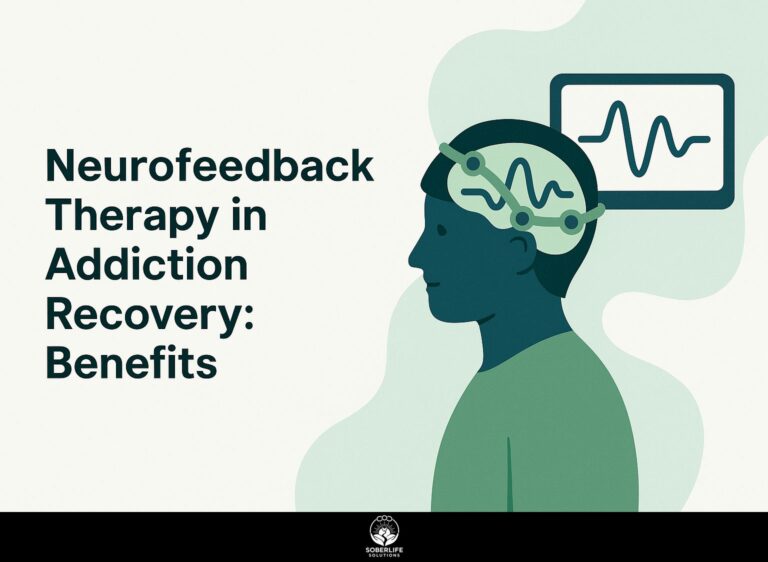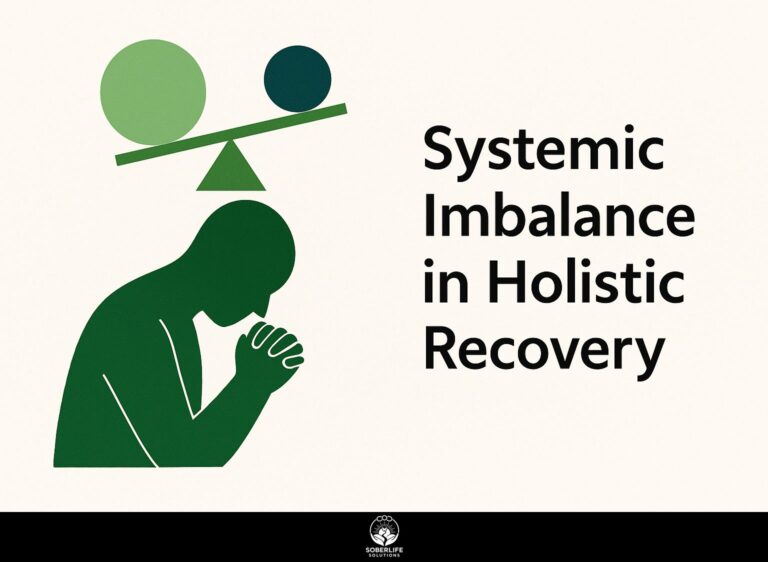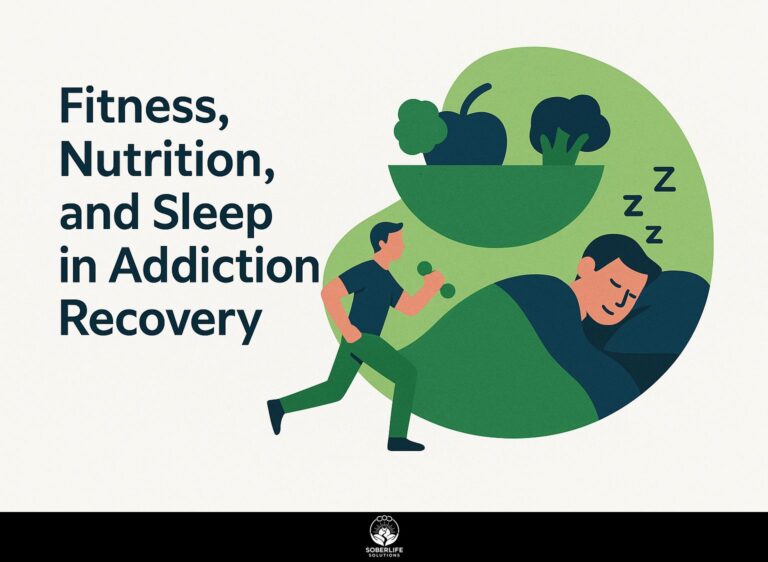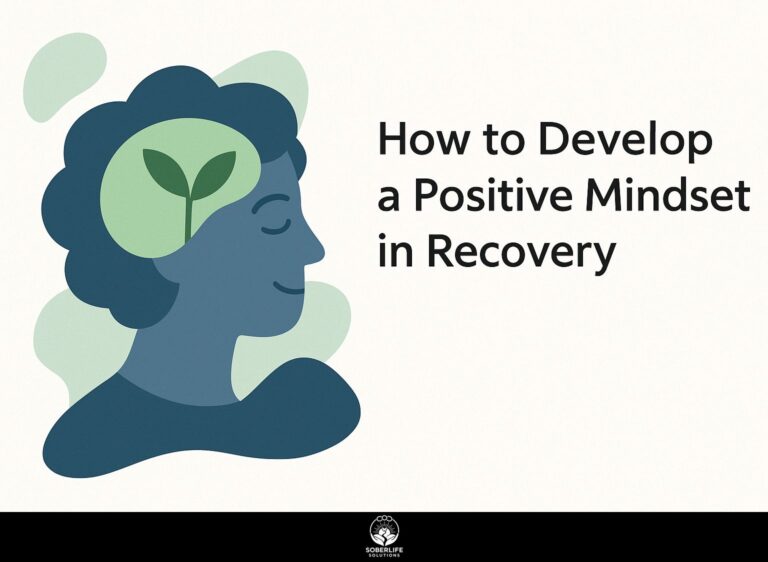Virtual Mental Health Treatments for Alcoholism Recovery
Recovering from alcoholism is now simpler, thanks to new treatment options like telehealth services. Organizations such as the Gateway Foundation offer online programs that provide specialized care and personalized support from home. This article looks at how effective virtual mental health treatments are, discussing their benefits and potential challenges, and ultimately showing a clearer path to recovery.
Key Takeaways:
- Online mental health treatments, such as video therapy and smartphone apps, make it easier for people recovering from alcoholism to get help and support.
- Online support groups and Cognitive Behavioral Therapy (CBT) provide useful alternatives to traditional approaches, creating a sense of community and offering personalized care.
- Even with its advantages, issues like the gap in internet access and privacy worries need to be resolved to improve the effectiveness of online treatment.
The Role of Technology in Alcoholism Recovery
Technology is important in helping people recover from alcoholism by providing various new solutions, as highlighted in a recent article by the American Psychological Association. One key aspect of technology’s role is its impact on patient engagement models, which enhance quality of life in recovery.
Teletherapy and Its Benefits
Teletherapy, now a standard for many, offers evidence-based treatment options through virtual counseling that fit various lifestyles and schedules.
Platforms like BetterHelp and Talkspace are leading options for teletherapy.
-
BetterHelp costs $60 to $90 per week and connects users with licensed counselors who offer individualized support.
-
Talkspace, at $65 per week, includes a variety of therapists, including those focused on addiction issues.
Both services provide a lot of options, allowing users to pick session times that work for them. One major advantage is the reduced travel time; 75% of users report being happier with therapy they can access from home, which makes mental health support more accessible than before.
Mobile Apps for Support and Monitoring
Mobile apps are becoming important resources in addiction recovery, providing features for tracking progress and offering support.
Two standout apps in this space are Sober Grid and I Am Sober.
Sober Grid, free to download, boasts a thriving community where users can share achievements and challenges, enhancing accountability.
I Am Sober has gained more than 1 million users in two years. It keeps track of sobriety goals and helps people find support groups.
This community helps people feel connected, which is important for staying sober. These tools are essential for anyone working towards recovery.
Types of Virtual Treatments
Virtual treatments for addiction recovery offer different options to meet specific needs. For those seeking a deeper understanding of various recovery methods, exploring the comprehensive support in recovery: approaches and benefits can provide valuable insights.
Online Support Groups
Online support groups such as Alcoholics Anonymous (AA) and SMART Recovery provide useful guidance from other members to individuals focused on their recovery. According to the Mayo Clinic, these platforms can significantly enhance an individual’s recovery journey.
These platforms typically offer weekly meetings held via video conferencing tools like Zoom or Microsoft Teams, accommodating various schedules.
AA has changed its approach by providing multiple meeting times to fit different time zones and schedules, leading to a 30% increase in online participation during the pandemic.
Hybrid formats are becoming popular, enabling members to participate in person or online, which improves access and builds community support.
Cognitive Behavioral Therapy (CBT) Online
Online Cognitive Behavioral Therapy (CBT) programs, such as CBT4CBT, offer structured learning and tools to address addiction issues effectively.
These programs emphasize practical exercises and real-life applications.
CBT4CBT offers a $50 course with interactive modules that focus on changing negative thoughts about substance use. Many participants report success, sharing how methods like challenging their thoughts and changing their behaviors have helped them stay sober.
Websites like Moodgym offer free tools for additional practice. These resources help people recognize and modify negative thoughts, which can make recovery simpler.
Effectiveness of Virtual Treatments
Studies show that online treatments can produce results similar to traditional approaches for handling substance use disorders. A recent study published in the Journal of Substance Use highlights the effectiveness of virtual treatment options, demonstrating comparable satisfaction and outcomes to in-person therapies. Those interested in the broader implications of these methods might find our exploration of integrating QoL measures in substance use treatment particularly insightful.
Comparative Studies with Traditional Methods
Studies reveal that participants in virtual treatment programs have similar recovery outcomes to those engaging in traditional therapy methods.
A notable study from the University of Pennsylvania found that individuals in online programs experienced a 20% increase in engagement compared to in-person attendance.
Another research indicated that overall satisfaction rates were nearly identical, with 85% of participants recommending both formats.
These findings indicate that using teletherapy tools like video calls or apps such as BetterHelp and Talkspace can make therapy more accessible while still being effective.
As we move forward, focusing on refining these tools may lead to broader acceptance and success in mental health treatments.
Challenges and Limitations
Virtual mental health treatments have benefits, but they also encounter serious problems that can affect how well they work and how easy they are to access. Understanding these challenges can be crucial in developing effective strategies for improvement, especially when considering approaches like developing self-care habits in recovery.
Access and Digital Divide
The digital divide remains a significant barrier, affecting access to virtual treatments for individuals in underserved communities.
Communities can take specific steps to close this gap.
- Establishing free community Wi-Fi zones in public libraries or community centers can provide internet access, helping over 20% of rural residents without reliable connectivity.
- Holding workshops on digital skills would help people who are not familiar with technology learn how to use online healthcare platforms.
- Partnering with local organizations to set up mobile technology units can deliver healthcare services directly to those in need, ensuring that everyone has access to essential treatments.
Privacy and Confidentiality Concerns
Privacy and confidentiality are important issues for people using online counseling services, affecting their willingness to ask for help.
To address these concerns, individuals should verify service platforms prioritize data security. Look for options like Talkspace and BetterHelp, which employ end-to-end encryption, safeguarding user communications.
Make sure the platform follows HIPAA rules that protect health information. Before making a decision, read the privacy policy and look for third-party audits to confirm its security.
Don’t hesitate to ask providers directly about their security measures, as transparency is key in maintaining trust during the counseling process.
Trends in Virtual Mental Health Treatments
Technology is changing virtual mental health treatments by helping patients communicate better and achieve improved results.
Innovative companies are incorporating artificial intelligence and virtual reality into their therapeutic services.
For instance, Woebot uses AI to provide 24/7 chat support, guiding users through cognitive behavioral therapy techniques. This is increasingly important as many seek to understand the tools and benefits of online therapy.
Companies like Limbix are developing virtual reality platforms that allow users to confront their fears in safe, controlled environments.
Apps like Sanvello offer self-help programs that cater to the unique needs of each user, making therapy feel appropriate and personalized.
These improvements make it easier for people to access services and provide engaging experiences that can improve mental health.
Frequently Asked Questions
What are Virtual Mental Health Treatments for Alcoholism Recovery?
Virtual Mental Health Treatments for Alcoholism Recovery refer to online therapy and support programs designed to help individuals struggling with alcohol addiction. These treatments can include video therapy sessions, mobile apps, online support groups, and educational resources that provide tools and strategies for recovery, all accessible from the comfort of one’s home.
How effective are Virtual Mental Health Treatments for Alcoholism Recovery?
Studies show that online treatments for alcohol recovery can work well. They offer flexibility, convenience, and privacy, encouraging more individuals to get help. Many programs rely on established techniques for recovery, like cognitive behavioral therapy and motivational interviewing.
What types of services are included in Virtual Mental Health Treatments for Alcoholism Recovery?
Virtual mental health treatment for alcohol recovery typically includes personal counseling, group sessions, self-help resources, and online workshops. Some programs offer access to licensed therapists, support groups, and tools to monitor progress, making recovery more accessible and suited to personal requirements.
Are Virtual Mental Health Treatments for Alcoholism Recovery safe and secure?
Yes, most online mental health treatments for recovering from alcoholism focus on protecting user privacy. They use secure platforms and follow rules like HIPAA to keep personal information safe during therapy sessions and interactions, creating a secure space for recovery.
How can I find the right Virtual Mental Health Treatments for Alcoholism Recovery?
To choose the best online mental health treatments for alcohol recovery, think about what you need, what you like, and how much you can spend. Look into different programs, read feedback from others, and verify the qualifications of the providers. Many services provide free trials or initial meetings, which lets you check out your options before making a decision.
Can Virtual Mental Health Treatments for Alcoholism Recovery replace in-person therapy?
Virtual mental health treatments for alcohol recovery can work well, but they are not right for everyone. Some people might find in-person therapy more helpful, especially if they have serious addiction issues or other mental health problems. For many others, online treatments offer a useful option or can work alongside regular face-to-face therapy.

